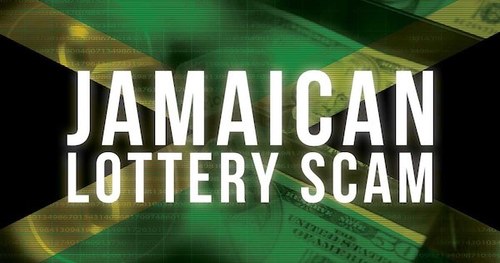There are some lottery scams that are so common and pop up so frequently that they are known around the world. While it might be hard to believe that scams like this still manage to con people out of their money, the reason they retain their popularity is precisely due to their success. One scam that fits this bill is the Jamaican lottery scam. In this article, we will look at what this scam is and how best you can avoid it.
What Is the Jamaican Lottery Scam?

One other thing to mention about this particular scam is that it has been known, in certain instances, to become rather violent. This occurs when the person or people being scammed begin to ask too many questions or start to mistrust the scammer. In extreme situations, doing this can lead to the scammer verbalising death threats to the victim as well as becoming angry, irritable and generally harsh. In one recorded instance, a scammer was recorded telling a target that they will be able to take her out using a sniper unless she paid an advance fee (more on this below).
How Does It Work?
The way that the Jamaican lottery scam works is almost laughably simple. Like many other lottery scams, it runs on the sole illusion that you, as the person being scammed, have won a high-stakes lottery. You will be notified of this either by an email that will mimic an official lottery email or via a telephone call that will tell you that you are the winner. While most people realise that the email is phony, many people fall prey to the phone calls because there is a general consensus that scammers are too afraid to call and deal with their targets in person. This misconception is generally what leads to even more people being scammed.
Once you have been notified that you are a winner, the next step in the process of “claiming your jackpot” will be to pay an advance fee. This advance fee will supposedly pay your taxes due, administration fees or a once-off brokerage fee. All this is, of course, lies since there is no jackpot that needs to be processed and paid out to you. This money is what the fraudsters are after and, once paid over, it is unlikely that you will hear from them again.
In certain instances, scammers may also be after your personal details such as your identity number and bank account details. You will usually have to submit copies of this information for the perpetrators to ‘verify’ it. These copies will most likely then be used to commit identity fraud, and the target will be left as a victim of identity theft.

Tips for Avoiding This Scam
There are several ways that you can avoid falling victim to this type of scam. Some of the best methods are listed below:
- Never trust any email saying that you have won a lottery-especially if it is a lottery that you don’t even remember entering. You can never, ever win a lottery that you do not enter and this is your first, and best, indication that it is a scam.
- Always forward emails stating that you have won a lottery to your relevant authority for them to investigate it. If you receive a phone call saying you have won a jackpot amount, report it as well.
- Never, for any reason, pay any amount to any person as an advance on receiving more money. Any place that has allocated you legitimate winnings will never require you to pay anything to receive the money. If this occurs, know that you are being scammed.
- If the scammer begins to be rude and irritable to you and especially if he or she begins to threaten you, immediately report it to the relevant authorities and seek their advice. Also, do not continue to accept calls from the scammers (unless instructed to do so by the authorities) and do not respond to any emails.
- Always be vigilant and check emails for spelling errors and common grammatical mistakes. Scammers generally make these mistakes, and this can help you identify the difference between scam emails and legitimate emails. If the scammer calls you, try and place their accent and see if they could possibly be from the area that they are claiming. Also listen to the quality of the call-overseas calls generally do not have fantastic quality. This alone could be indicative of a scam call.
Final Thoughts
By conning innocent people and using threats and scare tactics to terrify them into paying over money, the Jamaican lottery scam is worth an incredible fortune each year for fraudsters. However, if you follow the simple steps above, such as checking your emails for errors and never paying anyone money that you don’t know, you can avoid becoming a statistic.


